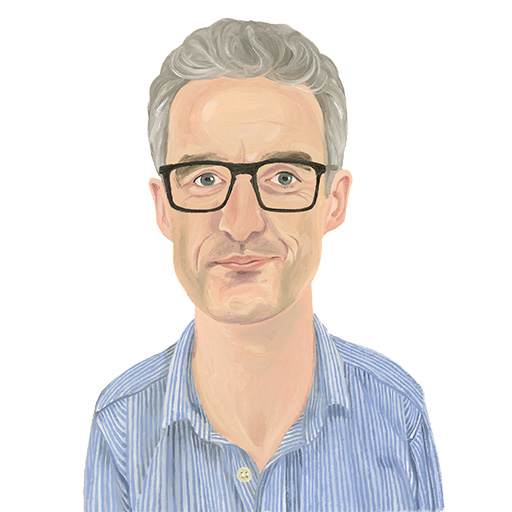“Power tends to corrupt, and absolute power corrupts absolutely.”
So said Lord Acton, a British historian of the late 19th and early 20th centuries, about how a person’s sense of morality too often decreases in inverse proportion to his or her power increasing.

Here in the European Union, while we have concerns about our politicians, we may like to console ourselves that at least we haven’t got it as bad as the US when it comes to the dangerously corrosive effect that power can have on lawmakers.
The world’s superpower increasingly – and disturbingly – appears to be run by a gerontocracy that either isn’t willing to give up power, or is being manipulated by others to stay in power to serve the latter’s bidding.
US President Joe Biden continues to provide evidence that he is not a fit and still rational 80-year-old. He regularly loses track of what he is saying, doses off at conferences, falls over and appears disorientated.
Despite being 83-years old, Nancy Pelosi, who only recently stepped down from being Speaker of the House, insists on remaining in the political fray as she slurs her words and often talks incoherently.
During a Senate Appropriations Committee hearing on the $831 billion Defence Appropriations bill, 90-year-old Californian Senator Dianne Feinstein had to be brought in with a wheelchair and reminded to vote “aye”. She had started reading a statement instead of voting.
It’s not just the ruling Democratic Party. Recently while giving a press conference, Mitch McConnell, the 81-year-old Senate Minority leader who wields significant power within the Republican party, suddenly went “mute and motionless” as he stared ahead for an uncomfortable 15 seconds.
Eventually his colleagues intervened and managed to guide him away from the podium off to the side – all captured by the cameras McConnell was meant to be addressing.
And if former US President Donald Trump, the clear favourite to be the Republican presidential nominee next year, were to win the 2024 US elections, he would be 78 years old when he takes office.
“Phew“, say we in the EU. Nothing like the US for serving up a bit of schadenfreude. But the EU technocrats who direct policy for the 477 million citizens of the EU, while not straying into dementia, show that comparative youth compared to America’s aging polity is no guarantee of political rectitude.
Angela Merkel, whose 16-year-tenure as German Chancellor is increasingly being blamed for Germany’s present woes, was 50 years old when she took office. Ursula von der Leyen was 61 years old when she became European Commission president in 2019 and still comes across as pretty spry.
Justin Trudeau, who has somehow managed to remain Canadian Prime Minister since 2015 despite turning Canada into a sort of authoritarian-lite “woke” nanny state, is 51 years old.
Notwithstanding reaching a point of clear physical and mental decline, age does not bar a person from being a good politician. Ronald Regan was 74 years old when he won a landslide victory for a second term as US President.
A good politician has more to do with finding the right person for the right job. Unfortunately in this day and age, due to the intrusion of identity politics and gender equality, fanned by the soundbites and quick takes of social media, selecting the right person for the right job in politics seems to be happening less frequently on both sides of the Atlantic.
In a recent interview with German media, Arnold Vaatz, who served as the deputy chairman of former Chancellor Merkel’s Christian Democrats in Germany’s federal parliament, decried the fact that when von der Leyen was appointed as Germany’s defence minister back in 2013, it was solely due to the fact she was a woman. She has been roundly blamed for ruining the Bundeswehr armed forces, although it appears others share the responsibility.
“We recently had three female defence ministers who were chosen for the sake of gender representation rather than their defence policy expertise,” Vaatz said.
A one-time key supporter of Angela Merkel has alleged that Germany is now a “dictatorship” and that Merkel “pulled the plug” on the country. https://t.co/z942F0cZIz
— Brussels Signal (@brusselssignal) August 7, 2023
This sort of affirmative political selection has been compounded, and notably in Washington and in Brussels, by the mainstream media in each power centre failing to do their job of providing robust scrutiny.
Instead, many media have becoming increasingly enmeshed with the political class they are meant to hold to account, becoming a “subset of partisan comms”, to quote a recent interview between the Tablet magazine’s David Samuels and the historian David Garrow about the rise and problematic legacy of former US President Barack Obama, and the failure of Washington’s press corps to remain non-partisan.
When they talk in the interview about the “controlled consensus” that the media maintains, they are referring to the media landscape in Washington. But the same sort of consensus-shaping occurs in Brussels and further afield in the EU, with media pushing particular narratives, and often in cahoots with the politicians in charge.
The Pope appears one of the few public figures willing to speak out against the myriad issues that are undermining both the continent and the EU project itself, writes @jrfjeffrey.@McLellan_Js | @OSV | @EduardHabsburg | @PM_ViktorOrban | @BBCArchive https://t.co/HMjyi74sPY
— Brussels Signal (@brusselssignal) August 8, 2023
“I think future historians are going to look at the Obama presidency and see it as the moment when this new oligarchy merged with the Democratic Party and used the capacities of these new technologies and the power of this new class of people, the oligarchs and their servants, to create a new apparatus of social control,” Samuels says.
Again, this speaks to the way the EU increasingly functions and to concerns about its continuing centralisation and consolidation of power, which has remained a perennial tension between the EU project and its Member States.
“Working more closely together does not require power to be centralised in Brussels or decisions to be taken by an appointed bureaucracy,” then-British Prime Minister Margaret Thatcher said in her famous 1988 Bruges speech to the College of Europe.
“We have not successfully rolled back the frontiers of the state in Britain, only to see them re-imposed at a European level with a European super-state exercising a new dominance from Brussels.”
Following the release of an EU Parliament special committee report on Covid-19, those hoping for a candid discussion about how lockdown policies were implemented across the bloc are going to be disappointed, writes @jrfjeffrey. https://t.co/sMkoW2FSWV
— Brussels Signal (@brusselssignal) June 16, 2023
That type of super-state dominance was on clear display during Covid-19 and lockdowns and can still be seen in the EC’s strident approach to its “green” agenda and progressive policies that clash with the values and national interests of various Member States.
“EU institutions are increasingly acting against the law. Make decisions first, then seek the basis … I call this potential creation an oligarchic superstate,” said Polish MEP @JSaryuszWolski. https://t.co/ZwIfA2ykYk
— Brussels Signal (@brusselssignal) July 24, 2023
“Whenever a single definite object is made the supreme end of the State, be it the advantage of a class, the safety or the power of a country, the greatest happiness of the greatest number, or the support of any speculative idea, the State becomes for the time inevitably absolute,” Acton wrote in 1862 in one of his most prophetic essays.






What the Pope gets right on Europe – and the EU’s mainstream media aren’t reporting